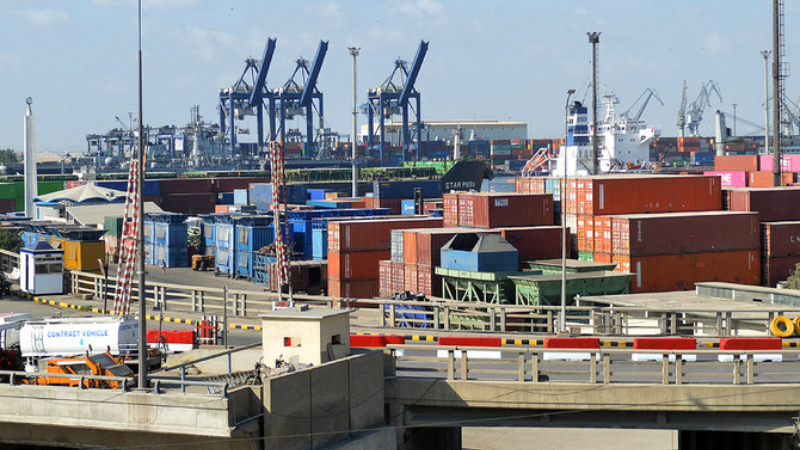Monitoring Desk
KARACHI: Business leaders have been demanding the cash-strapped Pakistani government to lift ban on the imports and allow the manufacturing materials stuck at the Karachi port into the country, warning that continuing with the exports suspended will leave millions of people jobless.
Faced with critically low US dollar reserves, the government has banned all but essential food and medicine imports until a lifeline bailout is agreed with the International Monetary Fund. Industries such as textiles, pharmaceuticals and steel are hardly functioning, leading to closure of thousands of factories and fueling unemployment.
The country’s steel industry has warned of severe supply-chain issues due to a shortage of scrap metal. The scrap metal is melted down and turned into steel bars. The bars have reached record prices in the past few weeks.
“We directly cater to the construction industry which is linked to around 45 downstream industries,” said chief of the Large Scale Steel Producers Association, Wajid Bukhari. “This whole cycle is going to be jammed,” he added. He further said that smaller factories have already shut after exhausting stocks, while some larger plants are just days from closing.
Import bill of around $150m a month
With an import bill of around $150m a month, the steel industry says its operations directly or indirectly affect several million jobs. The latest data from the State Bank of Pakistan said the foreign exchange reserves had plunged to just $2.9bn — enough for imports of less than three weeks.
“The situation aggravates fears the construction industry might close down very soon, throwing thousands of labourers into unemployment,” said the Constructors Association of Pakistan, echoing calls for machinery and steel to be exempted from the import ban.
Years of political instability and financial mismanagement have damaged the country’s economy — exacerbated by the devastating floods that submerged a third of the country and a global energy crisis.
Alongside a shortage of raw materials, rising fuel costs, soaring inflation and a plummeting rupee have battered the manufacturing industries in the country.
An International Monetary Fund delegation left Pakistan on Friday after talks to revive the stalled loan programme ended with no deal, leaving lingering uncertainty for the business leaders.
The garments and textile industry is responsible for around 60 percent of Pakistan’s exports and employs about 35m people, processing items such as underwear, towels and linen for major brands across the globe.
Read Also: Predicaments in the IMF Bailout Package for Pakistan
Shahid Sattar, secretary general of All Pakistan Textile Association is of the view that the textile industry should be prioritised. “We are the mainstay of the country’s exports,” he told AFP. “The textile industry has more or less come to a grinding halt in the country. We don’t have raw materials to operate mills,” Sattar added.
Around 30 percent of the textile mills have shut down operations completely, while the rest are working at less than 40 percent capacity.
The head of the Pakistan Pharmaceutical Manufacturers Association, Tauqeer ul Haq, said 40 pharmaceutical factories were on the brink of closure because of a lack of key ingredients.
Economist Kaiser Bengali opined that the supply-chain crisis was “feeding inflation and also hitting the government’s revenues”.
Nasir Iqbal, an economist at the Pakistan Institute of Development Economics (PIDE), said import bans like the one currently in place “can never be a sustainable solution”.
Meeting the conditions of the IMF bailout, such as by raising energy and petrol costs, is also expected to fuel inflation. In Peshawar, factories producing everything from glass to chemicals and rubber, mostly for the neighbouring Afghan market, have closed one after the other in the past several months.



























